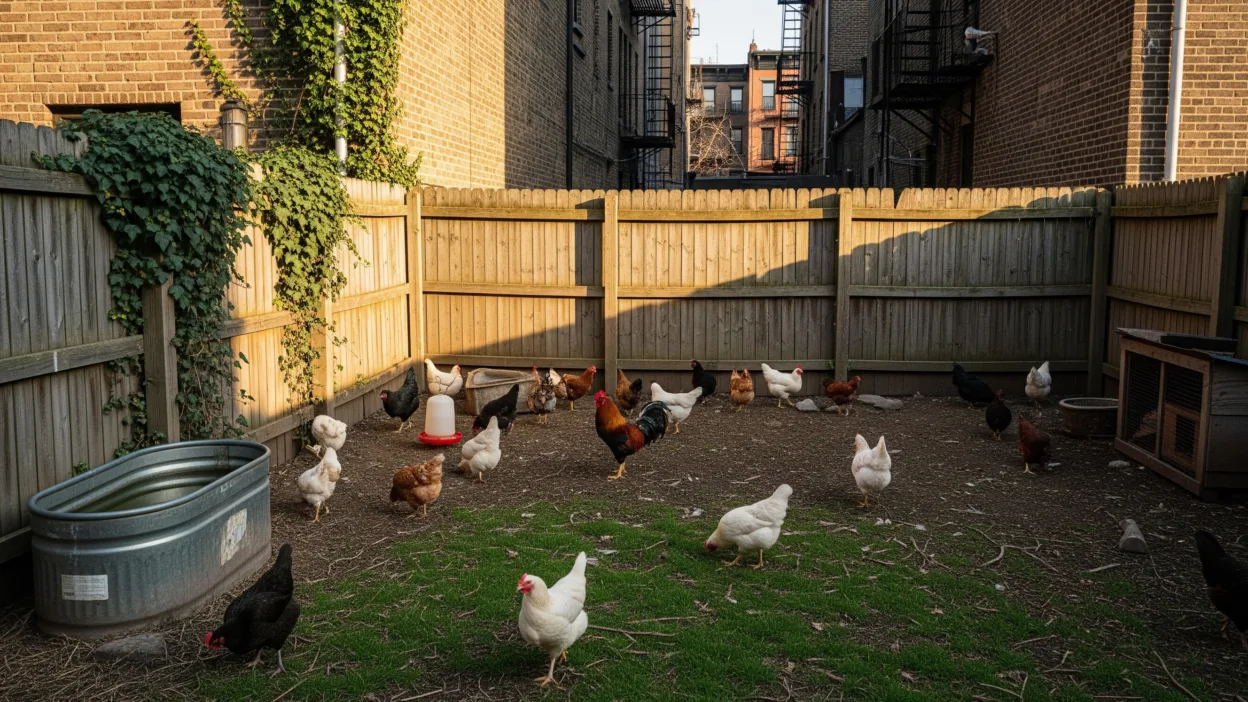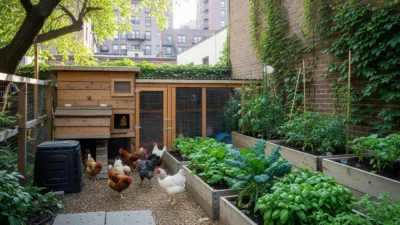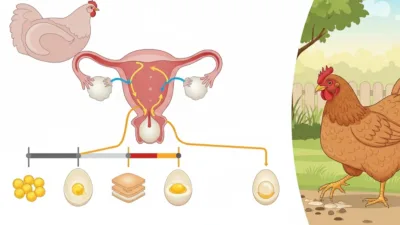Backyard chickens are curious and adventurous creatures. While it is fun to see them explore, their habit of escaping from the run or jumping over fences can be stressful for chicken keepers. Escaped chickens risk running into predators, damaging gardens, or even getting lost in the neighborhood.
If your flock keeps wandering where they should not, you need practical solutions. In this guide, we will explore the reasons why chickens escape, common mistakes owners make, and the most effective ways to stop chickens from escaping while keeping them safe and happy.
Why Do Chickens Escape in the First Place
Before you can stop chickens from escaping, you need to understand why they try to leave their enclosure. Chickens usually escape for these reasons:
- Foraging instinct: Chickens love scratching and searching for food. If the run is bare, they will look beyond the fence.
- Curiosity: Chickens are naturally inquisitive and will explore new spaces if given the chance.
- Pecking order pressure: Low-ranking hens may try to avoid bullying by leaving the flock area.
- Lack of space: Cramped coops and runs make chickens restless, leading them to find freedom.
- Roosting desires: Sometimes chickens fly up to perch in higher places, such as trees or fences.
- Predator fear: If spooked, chickens may jump or fly out of their enclosure.
Knowing the reason will help you choose the right solution.
Strengthen Your Fence
One of the easiest ways to keep chickens inside is to build or upgrade a fence that is tall and secure.
- Fence height: Most chickens can easily fly over a three-foot fence. Aim for at least 6 feet high if you have flighty breeds.
- Mesh or wire: Use chicken wire or welded wire with small gaps so chickens cannot squeeze through.
- Bury fencing: Dig at least 12 inches into the ground to prevent chickens from scratching under the fence and to stop predators from digging in.
If you already have a fence but your hens are still escaping, check for weak spots, holes, or areas where the wire has bent. Chickens are clever and will find any opening.
Clip Their Wings
Clipping chicken wings is a traditional method to stop them from flying over fences. It is painless when done correctly.
- How to clip: Use sharp scissors to trim only the primary flight feathers on one wing. Do not cut too close to the base.
- Why it works: Clipping one wing creates imbalance, making it harder for chickens to fly upward.
- When to clip: Do this every few months as feathers grow back after molting.
Wing clipping is not cruel and does not hurt the bird, but it should only be used if your chickens consistently fly out despite tall fencing.
Give Chickens Enough Space
Overcrowding is one of the main reasons chickens try to escape. When hens feel trapped, they will seek freedom.
- Coop space: Each chicken needs at least 3 to 4 square feet inside the coop.
- Run space: Provide 8 to 10 square feet per chicken in the run.
- Free ranging: If possible, allow supervised free range time. Chickens that get to explore a few hours a day are less likely to break out.
When chickens have enough space, food, and entertainment, they are less motivated to wander.
Provide Entertainment in the Run
Bored chickens are more likely to escape. Keeping them busy will reduce their desire to leave. Some enrichment ideas include:
- Hanging cabbages or leafy greens for pecking.
- Adding dust baths with sand or wood ash.
- Scattering scratch grains so they forage naturally.
- Providing logs, branches, or platforms for climbing and perching.
A stimulating run environment helps chickens stay content.
Cover the Run with Netting
Flighty breeds like Leghorns and game birds often try to fly upward. Covering the top of the run with netting or wire prevents chickens from escaping and also protects them from hawks.
- Bird netting: Lightweight, affordable, and easy to install.
- Wire mesh: More durable and long lasting but heavier.
- Shade cloth: Provides cover while keeping the run cool in hot weather.
Covering the run is one of the best ways to create a safe, escape proof enclosure.
Use Training and Routine
Chickens are smart and can learn routines. You can train them to return to the coop at certain times.
- Food rewards: Offer treats like mealworms when they return.
- Regular timing: Always call them back at the same time, such as before sunset.
- Sound training: Shake a food container or use a bell so they associate it with feeding.
With consistent training, chickens will prefer to stay close to the coop and will return willingly instead of escaping.
Build a Chicken Tractor
If you want your chickens to enjoy new grass and bugs without escaping, a chicken tractor is an excellent solution.
A chicken tractor is a movable pen with a covered top. You can shift it daily to provide fresh ground while keeping chickens safe and contained. This prevents escapes while giving them the benefits of free ranging.
Plant Natural Barriers
Sometimes chickens escape because they see open space beyond the fence. Creating natural barriers can reduce this temptation.
- Tall shrubs or bushes: Block the view and discourage flight.
- Trellises with climbing plants: Add height to fences.
- Garden fencing: Surround the chicken area with a second layer of barrier plants.
These barriers improve your yard’s look while helping contain your flock.
Watch for Predator Pressure
If predators such as dogs, foxes, or hawks scare your flock, chickens may try to escape to save themselves. A secure run with strong fencing and overhead cover will keep them calmer and less likely to break out.
Consider motion sensor lights or secure latches to protect against night predators like raccoons.
Common Mistakes to Avoid
When trying to stop chickens from escaping, many keepers make simple mistakes:
- Relying on short fences: Chickens can jump higher than expected.
- Ignoring gaps: Even small holes can become escape routes.
- Not giving enough food: Hungry chickens will search elsewhere.
- Clipping both wings: This can still allow balance in flight. Clip only one wing.
- Using flimsy netting: Cheap netting may tear easily and give chickens a way out.
By avoiding these mistakes, you can save time and frustration.
Final Thoughts
Stopping your chickens from escaping is about creating a safe, secure, and enriching environment. Strong fencing, wing clipping, and covered runs are physical solutions. At the same time, giving enough space, entertainment, and food reduces the desire to escape.
Remember, chickens are happiest when they feel safe, have room to explore, and are provided with proper care. By understanding why your flock is escaping and addressing those needs, you can keep them inside the run without stress.
A secure flock means healthier chickens, fewer worries, and peace of mind for you as the keeper.



